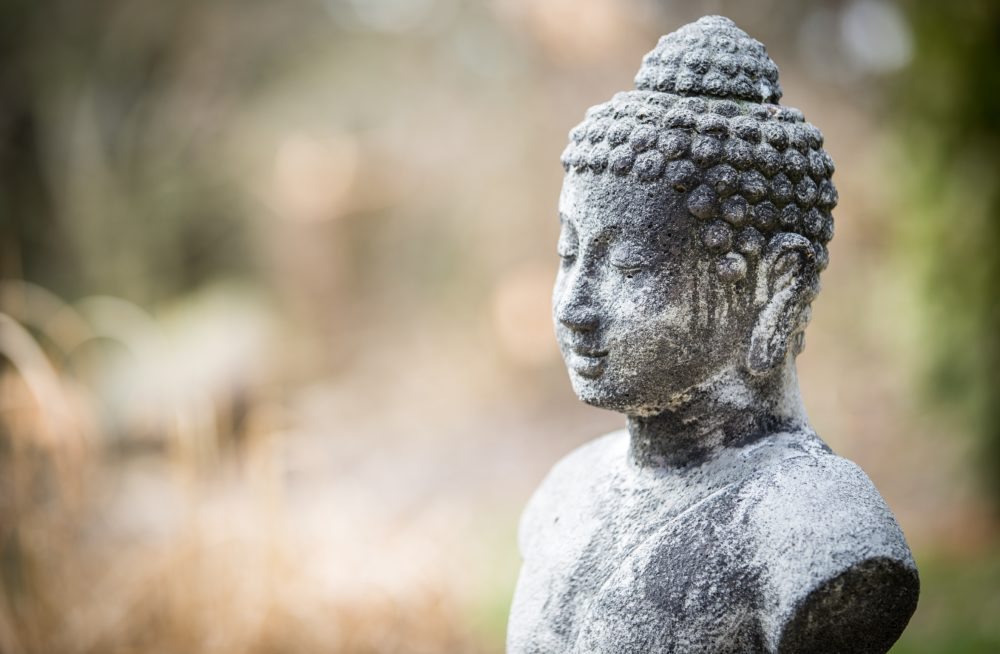Practicing discipline is often described through the five precepts of Buddhism. Many people take these five vows as a way to commit themselves to ethical daily life. But even for the rest of us, they provide helpful insights into shila/discipline. And remember, the overall focus of discipline is to avoid harm, do good, and be beneficial to all. The five precepts are:
- Do not kill.
- Do not steal.
- Do not deceive.
- Do not misuse sex.
- Do not use intoxicants.
“Do not kill” most obviously means not to murder someone, or to engage in war. For many, it also includes not eating meat, not killing animals for sport, and some even refuse to kill spiders, bugs, or mosquitoes. Of course, this is all a matter of personal conscience. The Buddha didn’t say much beyond “do not kill.” The point isn’t to agree on a set of rules; it’s to be thoughtful and aware enough to ask the questions. If you’re committed to relieving suffering in the world, these are necessary questions to ask.
“Do not steal” means far more than not robbing someone’s house. Lama Surya Das says it’s about “how to draw the line between our legitimate needs and our greed.” Stealing is taking or receiving anything that goes beyond what is necessary, or fair. Here are some examples he gives: accepting a salary higher than your peer, hogging all the attention at a party, using more than our fair share of natural resources. When we see stealing in this way, we realize we’re probably far more prone to stealing than we thought.
“Do not deceive” generally means not giving or creating false information. This includes trying to spin a story of our mistake to make us look less guilty, trying to exaggerate a story to make ourselves look better, or project a false image of ourselves. In today’s world of fake news, this is a precept worth taking seriously. When we bend the truth, or blatantly falsify information, we create confusion and suffering. And that’s not doing the world any good. Being a person of discipline means accepting consequences for what we do, and doing what we can to make amends.
On a personal level, “do not deceive” also means not lying to ourselves–which includes that nasty voice inside our heads that says we’re not worthy, or we can’t change. That kind of personal deception doesn’t do the world any good, either. So consider this your invitation to silence that critic in your head, for ethical reasons.
“Do not misuse sex” also deserves special attention these days. If sex isn’t an act that honors and dignifies the other person, it’s being misused. Sex that honors is mutual and consensual. People in places of authority should beware of how their role creates power dynamics that can make sex more about power than equality. (Deep sigh of sadness for our Catholic and Buddhist friends who are witnessing the suffering that comes from abuse of power up close these days.)
“Do not use intoxicants” obviously includes drugs and alcohol, but in broader terms it means not doing anything that will numb us or overstimulate us. If our minds have zoned out, we’re not paying attention. And being aware and attentive is how we live intentionally. So intoxicants can also include binge watching TV, playing hours of video games, mindlessly scrolling through social media, gambling, shopping, binge eating…the list goes on. The question worth asking when we want to do one of those things is: what are we avoiding? And if we are avoiding it, we’re not showing up. And showing up is what we soul ninja do. Yes?
So, here are a few ideas of how you could apply the five precepts this month:
- Eat less meat. Maybe you don’t go full vegetarian, but maybe you drop the animal protein from one meal of your day. You can join the many people who have adopted Meatless Mondays. And when you do eat meat, try to purchase meat that is ethically produced.
- Take one bug outside this month rather than killing it. See how it feels to be gentle with that little spider or roly-poly who would probably rather be outside anyway.
- Practice being a really good listener to someone. Don’t steal their time or attention as your own. Let them really have the space, and your full presence.
- Unplug a device that isn’t being used and is sucking up electricity. Or turn your thermostat up or down one degree. Or maybe carpool somewhere and save some gas.
- Practice a tech Sabbath. Spend a day (or a few hours) away from social media, TV, news. Take a break from the intoxicants. Go outside. Breathe deep.
Practice on!
This is part of the Paramita Project. You can learn more about it here and read my previous posts about discipline here and here.




